-
 bitcoin
bitcoin $87959.907984 USD
1.34% -
 ethereum
ethereum $2920.497338 USD
3.04% -
 tether
tether $0.999775 USD
0.00% -
 xrp
xrp $2.237324 USD
8.12% -
 bnb
bnb $860.243768 USD
0.90% -
 solana
solana $138.089498 USD
5.43% -
 usd-coin
usd-coin $0.999807 USD
0.01% -
 tron
tron $0.272801 USD
-1.53% -
 dogecoin
dogecoin $0.150904 USD
2.96% -
 cardano
cardano $0.421635 USD
1.97% -
 hyperliquid
hyperliquid $32.152445 USD
2.23% -
 bitcoin-cash
bitcoin-cash $533.301069 USD
-1.94% -
 chainlink
chainlink $12.953417 USD
2.68% -
 unus-sed-leo
unus-sed-leo $9.535951 USD
0.73% -
 zcash
zcash $521.483386 USD
-2.87%
What coins can be mined by hard drive?
Hard drive mining, or "plot mining," involves utilizing the storage space on standard hard drives to validate transactions and earn cryptocurrency rewards by solving cryptographic puzzles on stored plots, enabling non-specialized individuals to participate in the mining process.
Jan 09, 2025 at 04:04 pm

- Understanding the Concept of Hard Drive Mining
- Factors Determining the Profitability of Hard Drive Mining
- Choosing the Right Hard Drive for Mining
- Setting Up Your Hard Drive Mining Rig
- Troubleshooting Common Issues in Hard Drive Mining
Hard drive mining, also known as plot mining (plotting), involves using the storage space on a hard drive to validate transactions and earn cryptocurrency rewards. Unlike traditional cryptocurrency mining that uses specialized hardware (ASICs or GPUs), hard drive mining can be performed on standard personal computers or dedicated mining rigs equipped with large hard drives. This process is based on the proof-of-space (PoS) mechanism, where miners allocate disk space to store cryptographic proofs. By solving puzzles on these plots, miners contribute to the blockchain and earn rewards.
2. Factors Determining the Profitability of Hard Drive MiningThe profitability of hard drive mining depends on several key factors:
- Coin choice: Different PoS cryptocurrencies offer varying rewards and profitability levels. Research and select a coin with a good balance of profitability and stability.
- Hard drive capacity: The larger the hard drive, the more plots you can store, increasing your chances of earning rewards. However, larger hard drives come with higher upfront costs.
- Electricity costs: Hard drive mining consumes considerable electricity, so factor in your electricity rates when calculating profitability. Ensure that the revenue generated from mining exceeds the electricity costs.
- Market conditions: The price of the cryptocurrency you are mining fluctuates with market conditions, affecting profitability. Monitor the market and adjust your mining strategy accordingly.
For optimal hard drive mining performance, consider the following factors when selecting a hard drive:
- Size: Choose a hard drive with ample storage capacity to store multiple plots.
- RPM: Hard drives with higher RPMs (revolutions per minute) offer faster read/write speeds, improving mining efficiency.
- Reliability: Opt for hard drives with high MTBF (mean time between failures) ratings to minimize downtime and data loss.
- Durability: Hard drives designed for extended periods of operation are more suitable for demanding mining applications.
- Price: Compare the cost of different hard drives to find the best value for your budget.
To set up your hard drive mining rig:
- Install a suitable operating system (e.g., Ubuntu, Hive OS).
- Install the necessary mining software for your chosen cryptocurrency.
- Configure the software to specify the hard drive capacity allocated for mining.
- Create and store the required number of plots on the hard drive.
- Join a suitable mining pool to increase your chances of earning rewards.
- Failed plots: Ensure that your hard drive has sufficient space and is formatted properly.
- Connection issues: Check if your mining rig is connected to the mining pool correctly.
- Slow mining speed: Optimize your hard drive by defragging it and ensuring it is operating at optimal temperatures.
- Overheating: Hard drives generate heat during operation. Implement adequate cooling措施, such as case fans or external cooling systems.
- System crashes: Monitor your mining rig for any hardware or software issues that could lead to system crashes.
- CHIA
- Burstcoin
- Storj
- Filecoin
- Arweave
The upfront cost of starting hard drive mining can vary significantly depending on the hard drive capacity, the number of drives, and the cost of electricity. Generally, expect to invest several hundred to several thousand dollars.
Q: Is hard drive mining profitable?The profitability of hard drive mining depends on the factors discussed earlier. It is essential to carefully calculate the costs and potential revenue to determine if it is profitable for you.
Q: Can I mine Bitcoin with a hard drive?No, Bitcoin is not a PoS cryptocurrency. Hard drive mining is only possible for PoS-based cryptocurrencies.
Q: Is hard drive mining sustainable?Hard drive mining consumes large amounts of electricity and requires the ongoing production of new hard drives, which can have environmental implications. However, some PoS cryptocurrencies, such as CHIA, aim to minimize their carbon footprint through various green initiatives.
Disclaimer:info@kdj.com
The information provided is not trading advice. kdj.com does not assume any responsibility for any investments made based on the information provided in this article. Cryptocurrencies are highly volatile and it is highly recommended that you invest with caution after thorough research!
If you believe that the content used on this website infringes your copyright, please contact us immediately (info@kdj.com) and we will delete it promptly.
- Blockchains, Crypto Tokens, Launching: Enterprise Solutions & Real Utility Steal the Spotlight
- 2026-01-31 12:30:02
- Solana's Stumble and APEMARS' Rise: Crypto Investors Navigate Volatile Markets
- 2026-01-31 13:05:01
- Bitcoin Options Delta Skew Skyrockets, Signaling Intense Market Fear Amidst Volatility
- 2026-01-31 13:00:02
- Cardano Secures Tier-One Stablecoin: USDCX Arrives Amidst Global Regulatory Push
- 2026-01-31 13:00:02
- A Shining Tribute: Oneida Woman, Washington's Army, and the New $1 Coin
- 2026-01-31 12:55:01
- Super Bowl LX: Coin Toss Trends Point to Tails Despite Heads' Recent Surge
- 2026-01-31 07:30:02
Related knowledge
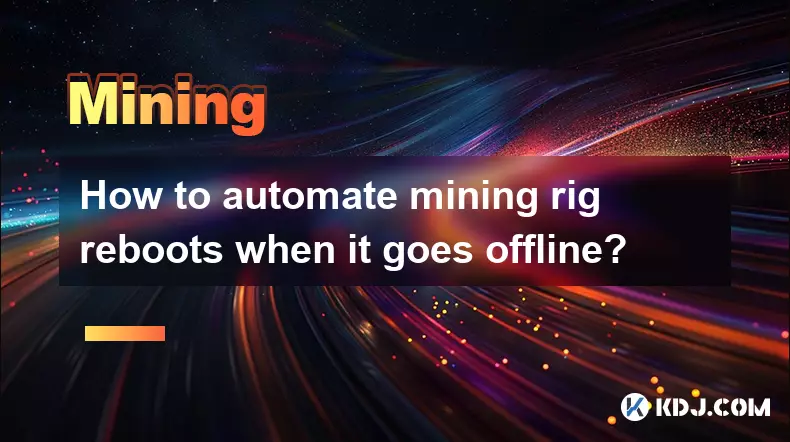
How to automate mining rig reboots when it goes offline?
Jan 23,2026 at 11:00pm
Monitoring System Integration1. Deploy a lightweight agent on the mining rig’s host OS that continuously reports hash rate, GPU temperature, and pool ...
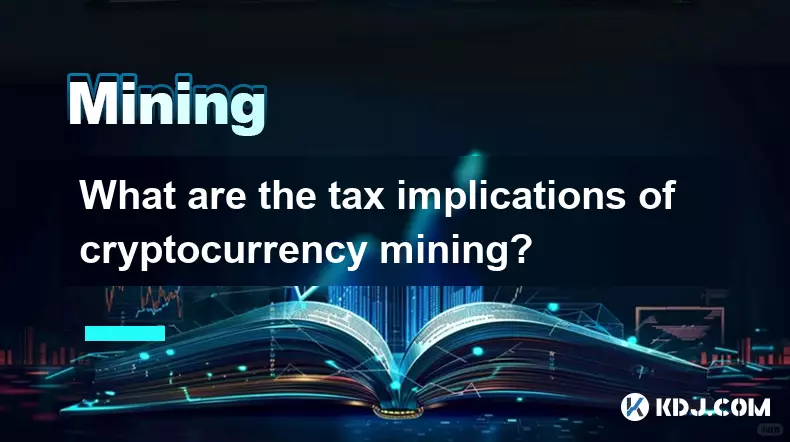
What are the tax implications of cryptocurrency mining?
Jan 23,2026 at 02:40am
Tax Treatment of Mining Rewards1. Cryptocurrency received as a reward for mining is treated as ordinary income by the IRS at the fair market value on ...
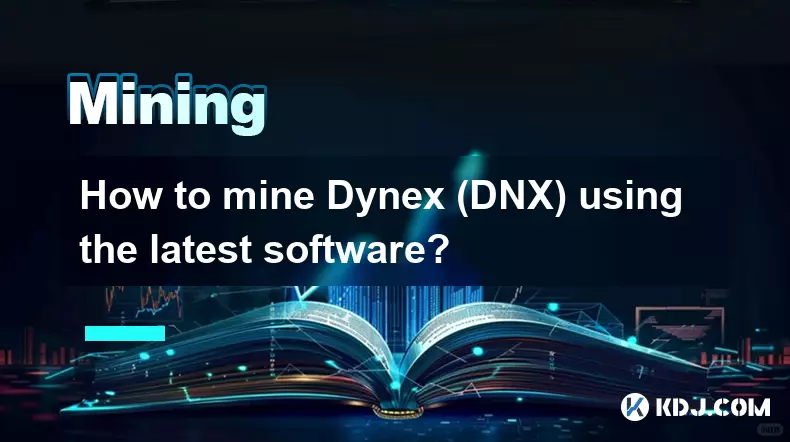
How to mine Dynex (DNX) using the latest software?
Jan 22,2026 at 10:00am
Understanding Dynex Mining Fundamentals1. Dynex (DNX) operates on a proof-of-work consensus mechanism optimized for neuromorphic computing workloads, ...
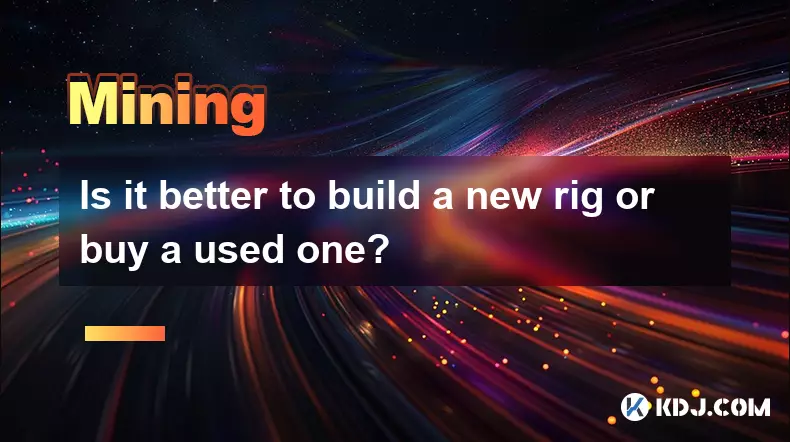
Is it better to build a new rig or buy a used one?
Jan 24,2026 at 10:20pm
Cost Efficiency Analysis1. New mining rigs come with manufacturer warranties, typically covering components for one to three years. This assurance red...
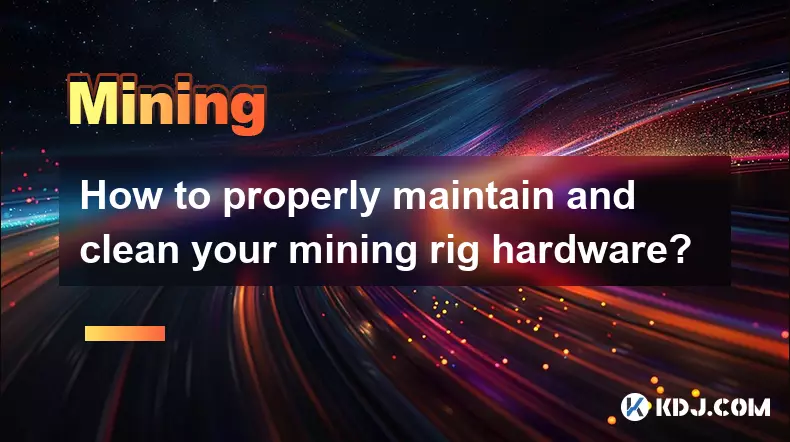
How to properly maintain and clean your mining rig hardware?
Jan 19,2026 at 11:00am
Cooling System Inspection and Optimization1. Dust accumulation inside fans and heatsinks directly reduces thermal dissipation efficiency, leading to h...
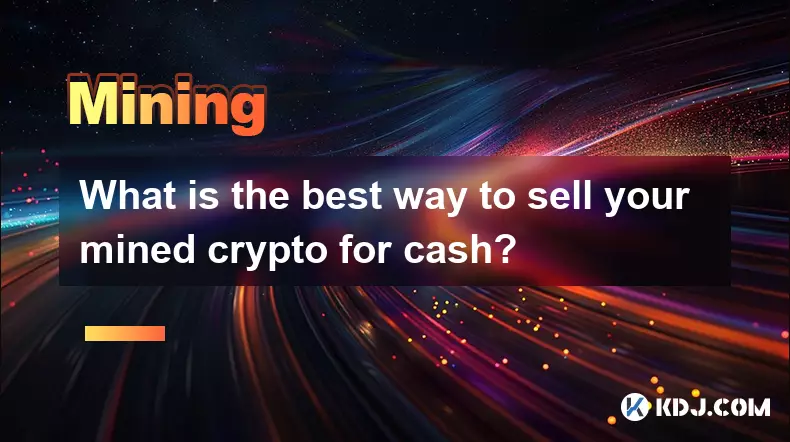
What is the best way to sell your mined crypto for cash?
Jan 20,2026 at 02:59am
Choosing the Right Exchange Platform1. Select an exchange with strong regulatory compliance and a proven track record of secure withdrawals. Platforms...

How to automate mining rig reboots when it goes offline?
Jan 23,2026 at 11:00pm
Monitoring System Integration1. Deploy a lightweight agent on the mining rig’s host OS that continuously reports hash rate, GPU temperature, and pool ...

What are the tax implications of cryptocurrency mining?
Jan 23,2026 at 02:40am
Tax Treatment of Mining Rewards1. Cryptocurrency received as a reward for mining is treated as ordinary income by the IRS at the fair market value on ...

How to mine Dynex (DNX) using the latest software?
Jan 22,2026 at 10:00am
Understanding Dynex Mining Fundamentals1. Dynex (DNX) operates on a proof-of-work consensus mechanism optimized for neuromorphic computing workloads, ...

Is it better to build a new rig or buy a used one?
Jan 24,2026 at 10:20pm
Cost Efficiency Analysis1. New mining rigs come with manufacturer warranties, typically covering components for one to three years. This assurance red...

How to properly maintain and clean your mining rig hardware?
Jan 19,2026 at 11:00am
Cooling System Inspection and Optimization1. Dust accumulation inside fans and heatsinks directly reduces thermal dissipation efficiency, leading to h...

What is the best way to sell your mined crypto for cash?
Jan 20,2026 at 02:59am
Choosing the Right Exchange Platform1. Select an exchange with strong regulatory compliance and a proven track record of secure withdrawals. Platforms...
See all articles





















![Ultra Paracosm by IlIRuLaSIlI [3 coin] | Easy demon | Geometry dash Ultra Paracosm by IlIRuLaSIlI [3 coin] | Easy demon | Geometry dash](/uploads/2026/01/31/cryptocurrencies-news/videos/origin_697d592372464_image_500_375.webp)




















































